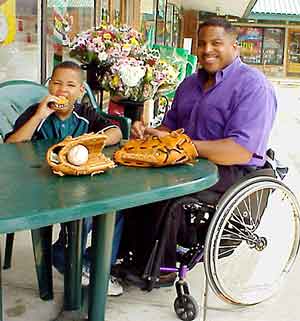Buying a foreclosed home takes patience, persistence and planning, but can result in big savings.
If you need to find, purchase and move into a new home within the next few months, then a foreclosure likely isn’t for you. But if you have more flexibility and are willing to take the extra steps needed, then purchasing a foreclosed home might just land you the home of your dreams—at a price you love!
What is a foreclosure?
When a property goes into foreclosure, the bank is essentially repossessing it from an owner who has failed to make payments. Most banks aren’t in the real estate business, however, and will attempt to resell the property through an auction. If the property does not sell at auction, the bank will try to sell the real-estate owned, or REO, property through an agent.
What kind of discount can I expect?
That depends on your market. Savings can be as high as 25% versus comparable homes in the area. You can expect larger savings by purchasing the home at auction than buying an REO property with the bank. In some cases, banks only own part of the property as many loans have been securitized and sold to investors—and these investors may only be willing to negotiate to a certain level. Expect discounts—don’t expect a fire sale.
What costs will I need to pay?
Remember, foreclosed homes are sold as-is. And sometimes, it’s not a pretty picture. The longer a house has been vacant, the more repairs you’ll need to make—pipes may have cracked, bugs may have settled in, landscaping may have run rampant. And previous owners, squatters or thieves may have removed appliances, cabinets, even copper piping.
How to buy a foreclosed home
Ready to move forward? Follow these steps to ensure you’re making the best investment:
- Determine your budget. Include the price you’re willing to pay and an estimate of repair costs for the home.
- Find an experienced agent. A broker should have extensive experience selling foreclosed properties and have special training.
- Get pre-approved. Good deals go quick. If you’re not pre-approved before you even make an offer, you likely won’t get the deal. Some lenders may require a home inspection before pre-approving you for a foreclosed property as they need to make sure the property is livable. If it’s not, they may require you to set up an escrow account to be used for making repairs
- Do your homework. Don’t buy sight-unseen. Check out the house and the neighborhood. Look at comparables for the area. Find out if the house was winterized when vacated. If you’re able, walk the home with a licensed contractor to get a sense of needed repairs and costs.
- Make your offer. Bid low, but remember the bank will only go so low. Submit a reasonable offer considering the home’s foreclosure status and state of repair—although don’t count on being compensated for needed repairs. Remember, the house is sold as-is.
- Protect your investment. Once your bid is accepted, hire a specialty inspector to search for mold and examine the septic system. And only sign the contract if it allows you to walk away from the home if the condition is worse than expected, or if a title search finds additional liens that cost more than a certain amount.
It may sound daunting, but with a little persistence and planning your “home sweet home” could be one sweet deal!
This article contains general information. Individual financial situations are unique; please, consult your financial advisor or tax attorney before utilizing any of the information contained in this article.
Related Articles
- Save Money With A Foreclosed R.E.O
- Foreclosed Homes Mean Big Discounts
- What are the FHA Loan Requirements?
- What is FHA Streamline Refinance?
- First Time Homebuyers Guide
- Financial Assistance for First Time Homebuyers
- How to Avoid Foreclosure
- What Is Foreclosure?
- Tips on Buying a Home
- How to Sell Your Home In a Down Market
 Print
Print Email
Email








